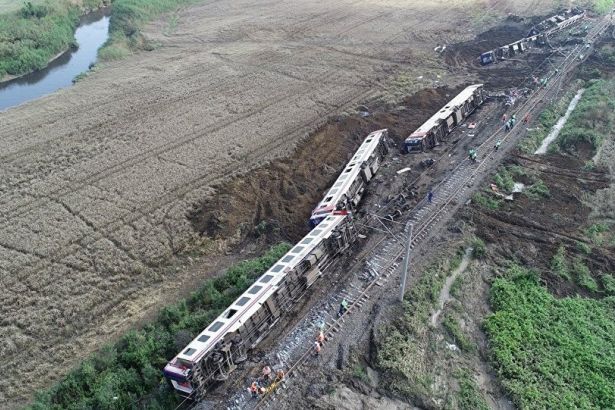Everything for sake of capital: creating most irrational transport mode from most rational

Turkey’s Ministry of Transport, Maritime Affairs and Communications (UDHB) has made railway investments over $20 billion between the years 2003 and 2016. The investments in question were in large part to provide certain investment groups with advantages. Though railroad transportation is the cheapest and most effective mode of transport, and considered necessary to encourage with public policies, the needs of the capital have been favoured in the investments, not extending the railways throughout the country in the most integrated and inclusive way with the lowest cost. It has been based on the current regional concentration and irrational settlement of the capital, and on profiting the transport monopolies in the highest-volume regions in their own "business models".
According to the data of the UDHB and the State Railways (TCDD), 10 large investments were made between 2003 and 2016, one portion being building new railways and one being the rehabilitation of the existing ones; 16 others are also in planning. The building of the projects in question was tendered to the private sector, especially to contractors in close relations with the ruling Justice and Development Party (AKP), just as other projects of transport. However, besides the transfer of over-20-billion-dollar sources, the routes were determined with capital in focus. The main concern was to focus on the priorities of the investment groups with a high volume in cargo space, giving them the edge on, and to create a space for transport monopolies some of which belong to the very same investment groups.
RAILWAY POLICIES ARE DERIVATIVE OF THE IRRATIONAL TRANSPORT PREFERENCES OF THE CAPITAL
The land route has a weight in domestic transport in Turkey. Nearly half of the domestic transport is comprised of carrying loads subject to foreign trade to ports, or from ports to distribute throughout the country. While large shipping ports were included in the body of the TCDD in the former organisation of the institution, and those ports had integration with railroads, this network has not been improved in years, and the whole structure has been dispersed with the privatisation of the TCDD ports. With the realisation of the investment groups with a high volume in cargo space, in times when fuel oil prices rocketed, that the railway transport was lower-cost, their demands increased that the railway network be restructured according to their interest.
Moreover, from the mid-2000’s, transport monopolies including Arkas, OMSAN, Reysaş, Borusan Logistics, and Ekol Logistics started to apply for railway freight transport. The transport business started with hiring freight cars, and has turned into using their own cars and benefiting from the infrastructure of the TCDD.
Thus, while the amount of cargo shipped by railways was around 16 million tonnes, it became 26 million tonnes in 2016. In the same period, the total length of lines increased from 11 thousand kilometres to 12,500 thousand kilometres, which means that new lines built were limited compared to rehabilitation. While the foreign trade development of Turkey has a role in the increase in the cargo in the period in question, it was also affected by the fact that solutions were delivered “special to the capital”, and that the railway use was organised so as to be suitable for the capital rather than an activity of freight shipping as a whole. Moreover, though high-speed train investments were highlighted and presented as “the railroad breakthrough” in the same period, the number of passengers transported in the main lines dropped from 27 million to 20 million.
PRIVATE SECTOR NOT ONLY USES THE INFRASTRUCTURE BUT ALSO SHAPES THE INVESTMENTS
Transport monopolies have been lobbying for years in order for railway transport to be done by the private sector. The group that outshines others in this respect is Arkas Logistics. Operating in this area for a long time with the Ar-Gü under their roof, Arkas have invested in locomotive and train cars.
The first group to sign the protocol of deregulation was OMSAN Logistics of Oyak. With the cargo of the Oyak Group from iron and steel to automotive, OMSAN Logistics is one of the companies with the highest volume in cargo space.
When companies such as Reysaş, Borusan Logistics, and Ekol Logistics, which carry the cargo of certain sectors and investment groups, are included, it can be said that the shift in railway transport to these groups will affect the future railway investments. When industrial and transport investments are not planned based on the basins, and the needs of the capital are taken into consideration, there comes the requirement of large consistent investments which take more sources. At the same time, investment groups might also impose some investments depending on the whole of their own activities.



